You have returned to the top of the page.
TOWARDS
ZERO
USING BLOOD PRESSURE MEDICATION TO IMPROVE BREAST CANCER SURVIVAL
Chemotherapy is an effective breast cancer treatment, but if tumours return, they may stop responding to therapy. In this new NBCF-funded study, Associate Professor Erica Sloan has discovered a way to reduce breast cancer relapse and save lives in the process – using blood pressure medication.
Chemotherapy has been central to treating triple negative breast cancer (TNBC), but a relapse can be devastating for patients. Often when tumours return, they stop responding to treatment, leaving limited options for those dealing with recurrence.
There is a critical need to develop new strategies to improve patient response to chemotherapy, prevent cancer relapse and increase survival rates.
Associate Professor Sloan and her team have found that stress is a key driver of breast cancer progression – and chemotherapy is a significant stressor on the body, causing it to enter fight-or-flight mode.
By investigating how chemotherapy triggers the body's stress response they were also able to identify why this reduces its effectiveness. In doing so they sought to prove that blocking this stress response during treatment, using beta-blocker drugs, stops relapse and could improve patient outcomes.
The team found that the beta-blocker drug, carvedilol, used to reduce high blood pressure and prevent heart damage caused by chemotherapy, improved the breast cancer survival rate.
The study confirms that beta-blockers can be safely used in combination with chemotherapy and are a promising option for improving breast cancer outcomes in the future. The drugs are also low cost and widely available, which makes this an even more exciting discovery.
While this finding is very promising, further clinical trials are needed before carvedilol can be used as a treatment strategy to slow breast cancer spread. Associate Professor Sloan’s team are currently working on the next stages of trials for this encouraging discovery.
This work is only possible with the generosity of people like you – we cannot thank you enough for your support of our goal of Zero Deaths from cancer by 2030.
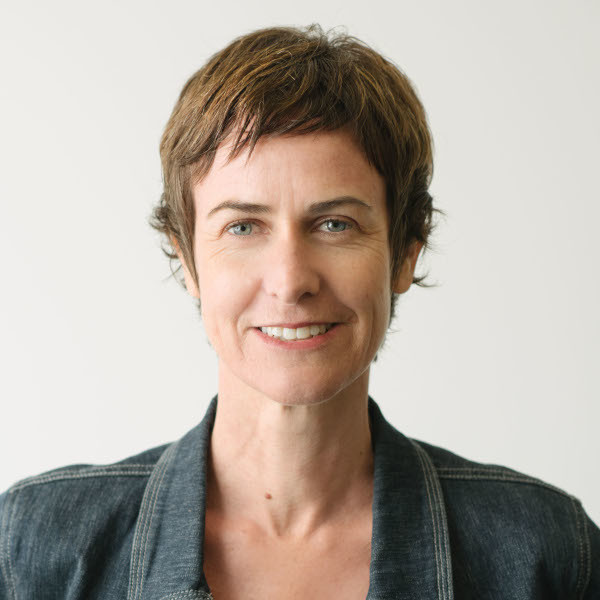
"It’s an exciting finding that shows that a cardiac drug that’s currently used to treat chemotherapy-induced heart disease, could also help slow or stop cancer”
- Associate Professor Erica Sloan,
NBCF-funded researcher
CELEBRATING WOMEN IN RESEARCH
This International Women’s Day, NBCF is proud to support and celebrate the women in research who are making an impact towards Zero Deaths from breast cancer by 2030. Here are just a few who are working tirelessly to change the future for thousands of Australians with breast cancer – and their families.
Associate Professor Stacey Edwards
QIMR Berghofer Medical Research Institute
NBCF-funded researcher Associate Professor Stacey Edwards journey with breast cancer began early.
When she was only five years old, her mother was diagnosed with the disease, and so began her lifelong search for answers.
Currently, Associate Professor Edwards is working on new ways to improve the effectiveness of PARP inhibitors for treatment of triple negative breast cancer. Her results could provide additional treatment options for advanced breast cancer.
Identifying the genetic change that drives the development of these tumours is a vital first step in personalising treatment for people with breast cancer.
"Breast cancer is a really complex disease. The more we know about it, the better we can treat it and hopefully prevent it altogether. It is only through research that we can achieve this."
- Associate Professor Stacey Edwards, NBCF-funded researcher
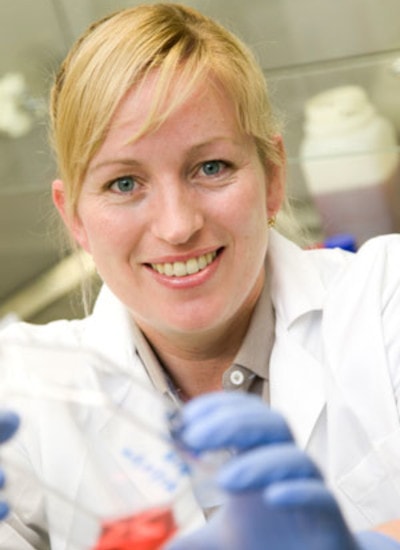
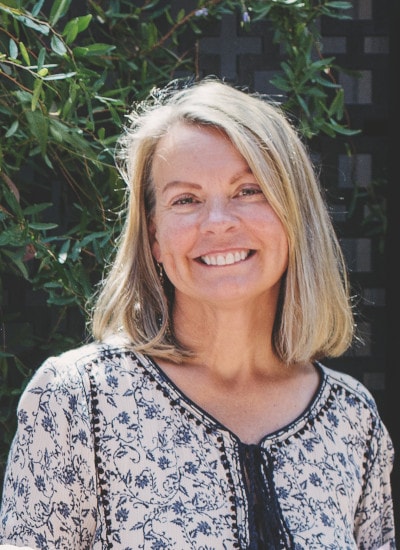
Associate Professor Theresa Hickey
University of Adelaide
NBCF-funded researcher Associate Professor Theresa Hickey’s high school biology teacher inspired her to pursue science. She has gone on to lead projects that have progressed to clinical trials, searching for effective treatment for estrogen-driven breast cancer that will have less side-effects.
In her research, Associate Professor Hickey is now working on a new method to attack the most aggressive form of breast cancers, including triple negative breast cancer. Her team are testing new drugs they’ve developed to limit the growth of aggressive cancer cells – potentially avoiding the need for gruelling chemotherapy treatment.
"Disease that defies all attempts at treatment lie within a ‘black box’, that we need to break open to improve breast cancer survival rates. A treatment that improves the survival opportunity of even a subgroup of cases in this box would be a major advancement"
- Associate Professor Theresa Hickey, NBCF-funded researcher
Dr Zhi Ling Teo
University of Melbourne and Peter MacCallum Cancer Centre
Curious and in awe of the complexities of the human body, NBCF-funded researcher Dr Zhi Ling Teo strives to develop more effective and personalised treatments to improve outcomes for breast cancer patients.
Right now, she’s focused on understanding the evolution of drug resistance and metastasis in aggressive HER2+ breast cancer.
Dr Teo will trace the full lifecycle of the disease and subsequent changes in the immune system.
"My research will answer some of these important questions to bring us closer to developing personalised therapies that are effective in controlling HER2+ breast cancer and to meet the target of Zero Deaths by 2030.”
- Dr Zhi Ling Teo, NBCF-funded researcher
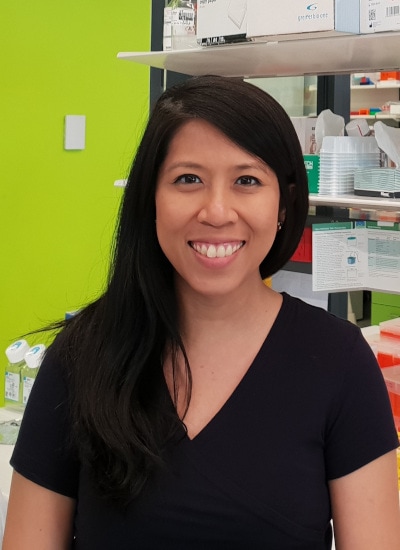
FUNDRAISING FOR A BRIGHTER TOMORROW
When Nikki was diagnosed with metastatic breast cancer, she wanted to make sure her daughters and women everywhere had a brighter future ahead.
The news of her breast cancer diagnosis came as a shock to Nikki, along with the discovery that she carries the BRCA2 gene mutation. Since then her mum and sister have also found out that they carry the mutation. With four daughters, Nikki was eager to raise awareness and much needed funds for breast cancer research.
For the second year running, Nikki has fundraised through a Pink Ribbon Breakfast event at the school where she used to teach.
To Nikki, the most rewarding part of fundraising is knowing how many lives will be changed by the research it fuels - creating a brighter future for so many with a breast cancer diagnosis and their families.
We would like to give our deepest thanks to Nikki and all of our fundraisers - your efforts and generosity help us towards Zero Deaths from breast cancer by 2030.
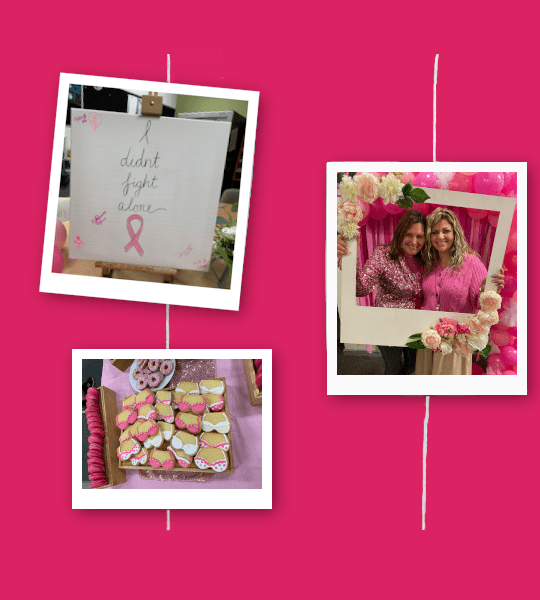
A WALK TO REMEMBER
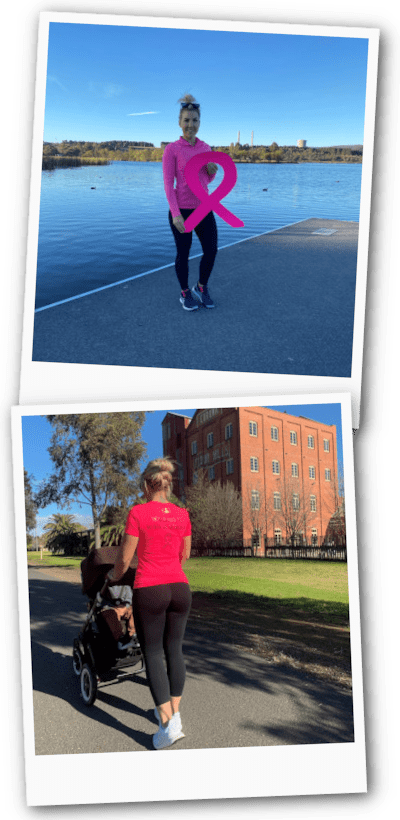
In April 2021, Jess’ grandmother was diagnosed with invasive breast adenocarcinoma, a subtype of breast cancer that begins in the glandular tissue. This also meant breast cancer had now affected 10 women in Jess’ family, including her mum.
So last October, as part of Breast Cancer Awareness month, Jess decided to raise funds for breast cancer research, by walking from her home in Wallerawang to Wagga Wagga in New South Wales – a massive 371km in just seven days.
When COVID restrictions were imposed, Jess was still determined to reach her goal. By adapting and adjusting her walk to be within her local government area, Jess walked an incredible 385km!
Jess knows the funds she has raised will go on to fuel life-changing research, helping women like her mother and grandmother now and in the future. We would like to thank Jess for taking on this huge challenge - tomorrow looks better because of you.
"Even if I help one more person, it’s worth it.”
- Jess, NBCF Zero Hero